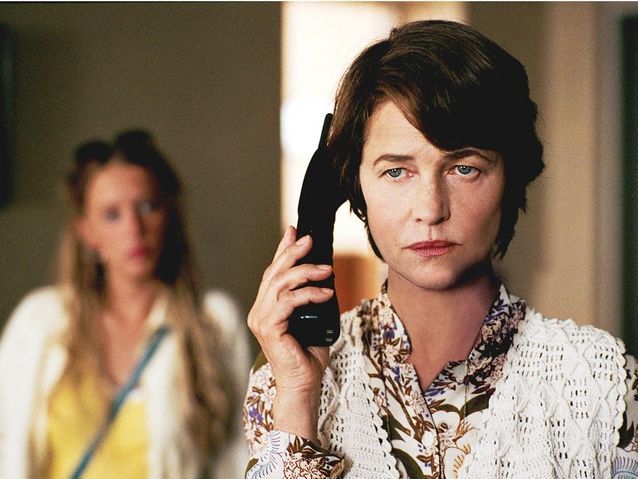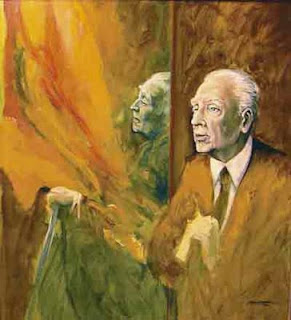Swimming Pool
 Tuesday, August 13, 2013 at 13:41
Tuesday, August 13, 2013 at 13:41 Vacations and holidays have always provoked squeals of bourgeois joy, and understandably so. When life is about going to and from work, the brain will be piqued by an interlude in our lockstep responsibilities even if nothing productive is accomplished in their stead (permanent vacation, however, can cause the bourgeois mind to soften and fry, as in this film). You will hear rave reviews of resorts and other catacombs of lechery and wonder what if anything about such a place could constitute a vacation – and then you will remember that for most of us, vacation means a break from the everyday. It needn't be relaxing or even fulfilling; all it needs to be is different. The escapism of such endeavors includes extreme sports, extreme gambling, and extreme intoxication, all routinely lauded as irresponsible fun, which of course they are. Yet for those with an abiding interest in art, there can be no empty beaches and empty thoughts. Life is a continuous circuit of energy that can be harnessed for monumental achievements of creativity and beauty. And while life is to be lived, it must also be reproduced in a pleasing fashion: it must shine, crinkle, and bend as neatly as a new tie or punctilious map. Writers secluded in a humble house are prone to these fits of perfectionism and carry them out ruthlessly (among literary cranks, being disturbed when on a pilgrimage is the most unforgivable of sins). It is always advisable to leave unbothered the concentrated writer, if only because he wouldn't be much fun even if you did get his attention. Which brings us to this acclaimed film.

 The London tube hosts our first scene, which is supposed to establish character but actually does quite the opposite. On one seat, avoiding eye contact, is well-known mystery writer Sarah Morton (Charlotte Rampling), and across from her, cradling her latest Inspector Dorwell thriller, is a devoted fan. When the worshiper identifies her heroine, Sarah does not so much deny the charge as dismiss it as an oversimplification. Her name may indeed be Sarah Morton but, as she tells her disappointed admirer, "I'm not who you think I am." We escape the tube and find our way into the offices of Sarah's publisher, John Bosload (Charles Dance). Sarah's peer in age and education, John is a handsome devil who has the sinisterly confident look of most devils who appear charming because they never appear afraid or unsteady. On her way in he introduces her to a younger writer whom Sarah then disparages in private, and we already perceive the film's compass and chart: Sarah's jealousy. The details of her innermost thoughts are never quite laid plain, but it is rather clear that in their long and successful partnership Sarah and John have shared more than tea and royalties. After thinly-guised jabs at one another – John at Sarah's writer's block, Sarah at his avarice and insincerity – the publisher speaks the magic, open-sesame formula: "Why don't you confound your critics and write something completely different?" Is this beneficence or something else? When someone intimately familiar with your artistic work suggests a new direction, should you take it as a sign of caring or contempt? Sarah has already convinced herself that what John thinks of her books dovetails with what he thinks of their authoress. And for that reason she initially rejects his second suggestion, that of heading down to his house in this French town and cracking writer's block the old-fashioned way, that is, with the chisel of creative serenity. She goes home to her aged father, paces, ponders (Rampling's face, for all its coldness, is remarkably expressive), and is soon met in a French airport by the concierge of John's little haven, Marcel.
The London tube hosts our first scene, which is supposed to establish character but actually does quite the opposite. On one seat, avoiding eye contact, is well-known mystery writer Sarah Morton (Charlotte Rampling), and across from her, cradling her latest Inspector Dorwell thriller, is a devoted fan. When the worshiper identifies her heroine, Sarah does not so much deny the charge as dismiss it as an oversimplification. Her name may indeed be Sarah Morton but, as she tells her disappointed admirer, "I'm not who you think I am." We escape the tube and find our way into the offices of Sarah's publisher, John Bosload (Charles Dance). Sarah's peer in age and education, John is a handsome devil who has the sinisterly confident look of most devils who appear charming because they never appear afraid or unsteady. On her way in he introduces her to a younger writer whom Sarah then disparages in private, and we already perceive the film's compass and chart: Sarah's jealousy. The details of her innermost thoughts are never quite laid plain, but it is rather clear that in their long and successful partnership Sarah and John have shared more than tea and royalties. After thinly-guised jabs at one another – John at Sarah's writer's block, Sarah at his avarice and insincerity – the publisher speaks the magic, open-sesame formula: "Why don't you confound your critics and write something completely different?" Is this beneficence or something else? When someone intimately familiar with your artistic work suggests a new direction, should you take it as a sign of caring or contempt? Sarah has already convinced herself that what John thinks of her books dovetails with what he thinks of their authoress. And for that reason she initially rejects his second suggestion, that of heading down to his house in this French town and cracking writer's block the old-fashioned way, that is, with the chisel of creative serenity. She goes home to her aged father, paces, ponders (Rampling's face, for all its coldness, is remarkably expressive), and is soon met in a French airport by the concierge of John's little haven, Marcel.
Sarah walks around, shops, and generally pretends that she actually lives in these surroundings – a very common habit of writers, however temporary the quarters. After having made herself sufficiently comfortable, she rings up John to discover when he will be visiting (a similarly unsubtle request was made during their office palaver), but his hemming and hawing transforms her whole body into the brittle sculpture of the scorned. There is also the matter of John's daughter. This daughter, Julie (Ludivine Sagnier), mentioned so casually in London, arrives with baggage in tow on one of Sarah's first nights and is not exactly welcomed. "So," she tells Sarah,"you're Daddy's latest conquest," although Sarah was probably conquered and colonized quite a while back. Julie is a nice-looking girl if you are not fussy about the neck up; she is also one of those people who squint when they smoke as if feigning that they have no vices. She and Sarah take an immediate dislike to each other, first and foremost because they are both victims of John's neglect, and secondly because as sedate and conservative as Sarah appears, Julie is voluptuous and in constant heat. Julie begins taking in the trash, one pudgy, oafish one-night-stand after another, with the aim in all this being, one supposes, frivolous pleasure as well as a territorial pissing – a stark contrast to Sarah's puritanical agenda. Some critics have surmised that Julie may be a younger version of Sarah, but women as promiscuous as Julie do not become as prudish as Sarah over time; they retain a spark, a flame of lustfulness that can always be detected even when physical pleasures have become rare or just a memory. That is not to say that Sarah, who is filmed as if she were twenty-six not fifty-six, is completely bereft of sexuality. She does crave John, and on more than one occasion her gimlet eye caresses the contours of Franck, a waiter at her favorite café. But she clearly disapproves, verbally and in her mind, of how little Julie values her own body. So you can imagine her surprise when, one fateful night, Julie chooses to bring home Franck.
My strict policy of non-disclosure prevents the inclusion of further details, but a mystery does take shape that has sparked debate among viewers (Is Julie real or imaginary? How about the trip to France? What really happened on that night with Franck? What about Julie's mother? Even poor Marcel gets implicated). Without sounding too self-satisfied, the mystery is hardly a mystery at all. What Sarah writes about and what occurs may not, at first blush, seem to coincide, yet the story makes sense the first time and is thoroughly uncovered upon reviewing. Slowly the scenes form a symbolic fist pointing to one glaring irregularity that cannot be explained otherwise. Ozon exhibits a regrettable reliance on sex to move between critical junctures in his films, with Swimming Pool being no exception (some directors, it should be said, use violence or mawkish sentimentality to the same ends), and there will be moments that the viewer will deem utterly unnecessary. Yet the camera is always substantive, careful, and affectionate. It also allows the two main characters to converse at length without boring us or themselves. So when Sarah states that, "when someone keeps an entire part of his life from you, it's fascinating and frightening," we wonder whom she has in mind. And I haven't even mentioned what she thinks of swimming pools.




